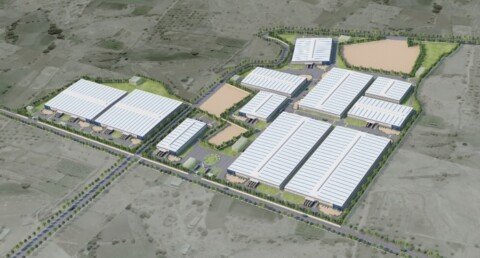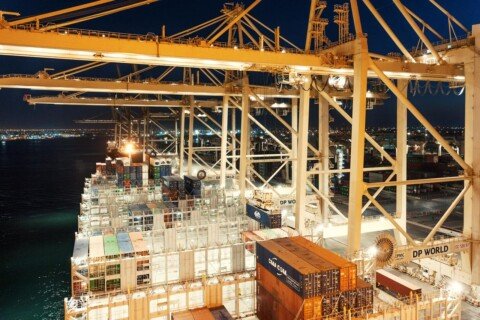Following the introduction of its Safer, Better, Bigger strategy in 2021, APM Terminals has taken the next step on its transformation journey – introducing its new organisational structure aimed at accelerating customer centricity and decision making, improving its agility and enabling responsible growth.
As part of the changes, the company has established three macro regions in line with its geographical footprint and future growth aspirations: Africa & Europe, Americas and Asia & Middle East. This shake-up, in addition to its Hubs & Collaboration organisation, primarily focusdes on operational synergies and innovation opportunities between Terminals and Maersk Ocean.
Alongside these changes, comes a streamlined and simplified management structure to enable better proximity to the markets, with Regional Managing Directors now reporting directly to the CEO and with a more focussed COO function to further drive operational excellence and automation.
Igor van den Essen, Jon Goldner, Leo Huisman has been appointed Regional Managing Director– Africa & Europe; Regional Managing Director– Asia & Middle East; and Regional Managing Director– Americas, respectively.
APM Terminals Keith Svendsen who took to the role of CEO on July 01 said, “As we dive deeper into our strategy execution this year, we are introducing changes that help us keep up with market developments and customers’ expectation, and which make us safer, more agile and better performing.”
“In parallel, we maintain our strong commitment to the communities where we operate, anchoring our local strength, expertise and experience with our terminals around the world.”
In line with APM Terminals’ revised and more robust decarbonisation ambition, Decarbonisation office becomes part of the COO function, with Head of Decarbonisation for APM Terminals reporting directly to the new COO, placing the decarbonisation agenda at the heart of operations.
In January 2022, APM Terminals committed to bringing forward by a decade its Net Zero greenhouse gas emission target to 2040 and to a 70% reduction in absolute (total) emissions as an interim milestone for the period 2020-2030, which was the most ambitious target set by any terminal operator to date.







